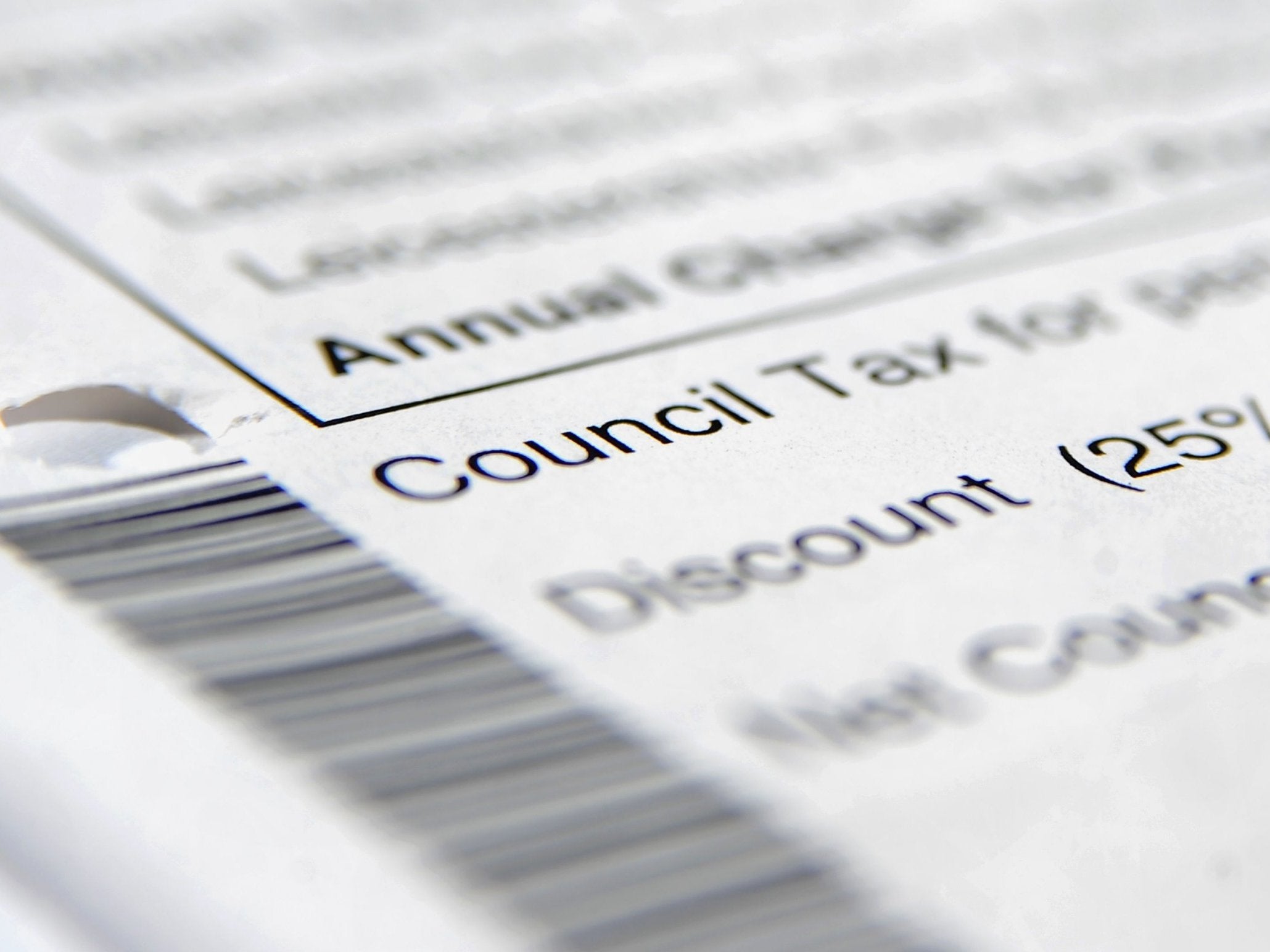Council tax bills to rise by an average of 4.5 per cent
'Local authorities have faced the most significant cuts to spending over the last 10 years, and despite the Government's announcement that austerity is ending, for local authorities this is clearly not the case'

Your support helps us to tell the story
From reproductive rights to climate change to Big Tech, The Independent is on the ground when the story is developing. Whether it's investigating the financials of Elon Musk's pro-Trump PAC or producing our latest documentary, 'The A Word', which shines a light on the American women fighting for reproductive rights, we know how important it is to parse out the facts from the messaging.
At such a critical moment in US history, we need reporters on the ground. Your donation allows us to keep sending journalists to speak to both sides of the story.
The Independent is trusted by Americans across the entire political spectrum. And unlike many other quality news outlets, we choose not to lock Americans out of our reporting and analysis with paywalls. We believe quality journalism should be available to everyone, paid for by those who can afford it.
Your support makes all the difference.The average household in England faces a £75.60 rise in council tax from April, according to a survey of local authorities.
The Chartered Institute of Public Finance and Accountancy (Cipfa) study found a planned average increase of 4.5 per cent for Band D households in 2019-20.
The increase is lower than the 5.1 per cent or £80.92 rise last year, but is still the second highest council tax rise in the last decade, Cipfa said.
Of the authorities in England which responded, 301 of 312 said they would increase their council tax.
Households in Greater London are expected to see the highest percentage increase in their bills at 5.1 per cent. But in cash terms their total bill will be an average £1,476.39, while bills in the northeast will be £1,883.95.
“The extent of the rises across the country are a reflection of the incredible fiscal pressure faced by local authorities and police,” said Cipfa CEO Rob Whiteman. ”Without a bolder vision from government, the future of these services is increasingly being put at risk.
“Local authorities have faced the most significant cuts to spending over the last 10 years, and despite the government’s announcement that austerity is ending, for local authorities this is clearly not the case. Long term they remain in an unsustainable position. Ministers need to make radical decisions to secure the future of public services.
“Council tax is regressive, and increasingly divorced from the reality of property values. They will not be sufficient to meet rising demand for services such as adult, and increasingly, children’s social care.”
A Ministry of Housing Communities and Local Government spokesman said: “We are investing in Britain’s future by providing local authorities with access to £45.1bn this year – increasing to £46.4bn next year – to meet the needs of their residents. Councils, not central government, are responsible for managing their own resources. Taxpayers can veto excessive increases via a local referendum.”
Press Association
Join our commenting forum
Join thought-provoking conversations, follow other Independent readers and see their replies
0Comments